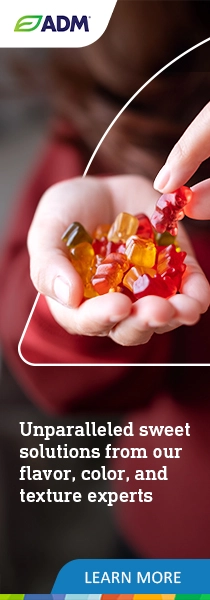
- Industry news
Industry news
- Category news
Category news
- Reports
- Key trends
- Multimedia
- Journal
- Events
- Suppliers
- Home
- Industry news
Industry news
- Category news
Category news
- Reports
- Key trends
- Multimedia
- Events
- Suppliers

Surplus food marketplace Too Good To Go is expanding its presence in the US, where 38% of food produced each year goes to waste. The app, which connects consumers with surplus food from local restaurants, grocers, and cafes, has grown alongside both national chains like Whole Foods and regional ones like Just Salad and Peet’s Coffee.
The company added more than 5,000 businesses over the past year and plans to extend its reach to Albany, Syracuse, Buffalo, and Milwaukee in 2025.
Through Too Good To Go, users can buy “Surprise Bags” filled with surplus food at a reduced price, offering an alternative to traditional food waste disposal methods.

Chris MacAulay, VP of Operations at Too Good To Go in North America, says: “Americans face both a massive environmental challenge and a powerful business opportunity when it comes to food waste. With millions of new users joining us this year and a rapidly growing partner network, it’s clear there’s strong demand for everyday solutions that make food more affordable.”
Tackling waste with technology
Since its US lanch, Too Good To Go has seen significant growth. What took 15 months to save the first million meals is now happening every month, says the social impact firm. The app has grown by 3.6 million new users in 2025, and over 8.1 million meals have been saved in the first seven months of the year, reflecting a 67% increase from 2024.
“Through Too Good To Go, our network of over 100 stores across New Jersey, Florida, Massachusetts, Illinois, New York, Connecticut, and Pennsylvania has helped avoid more than 1.7 million pounds of CO2eq through rescued Surprise Bags,” says Alex Harden, director of Supply Chain & Sustainability at Just Salad.
“As the home to one of the largest and longest-running reusable packaging programs in the US restaurant industry, we are committed to reducing food and packaging waste, and our partnership with Too Good To Go helps us scale that impact.”
Last year, the Danish company launched an AI-powered solution to help supermarkets verify the expiry date of food products and reduce the number of expired products on shelves. The platform’s algorithms generate and display a “near-expiry product shortlist” for store employees, organized by shelf location.












